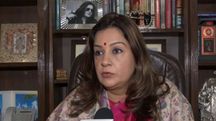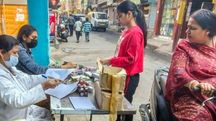At Least 550 Monkeypox Cases over 30 Countries
 At Least 550 Monkeypox Cases over 30 Countries
At Least 550 Monkeypox Cases over 30 CountriesScientists are pushing the world to ensure that lower-income countries benefit from the rewards of that labour as incidences of monkeypox in wealthier Western countries inspire a frenzy of scientific study to battle the spread.
According to the World Health Organization(WHO), more than 550 confirmed cases of monkeypox have been recorded from at least 30 countries outside of Africa, where the virus is generally found.
Scientists are flummoxed as to what is driving the current crop of cases - mostly identified in Europe so far - given they are predominantly not linked to travel to Africa.
Countries in Africa have experienced sporadic monkeypox outbreaks since the virus was first discovered in humans in 1970.
The biopharmaceutical industry has in recent weeks made commitments deliver vaccines, treatments and develop more diagnostics to address monkeypox as the viral disease spreads in many parts of the developed world.
Animals and humans are changing their behaviour, including food-seeking habits to adjust to rapidly changing weather conditions linked to climate change, the WHO warned on Wednesday.
On Thursday, some health experts raised concerns monkeypox and other infectious diseases could be transmitted to animals via human medical waste.
Copyright©2026 Living Media India Limited. For reprint rights: Syndications Today









